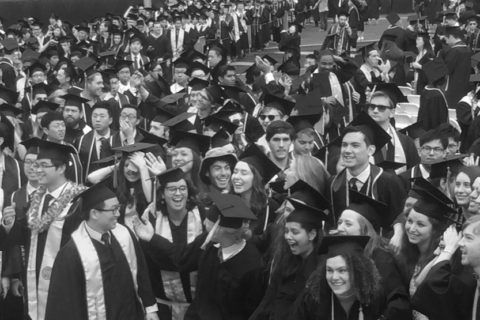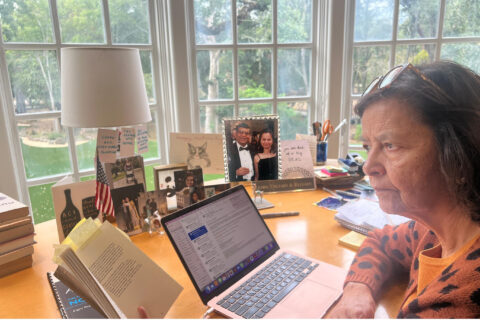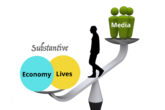
Having faced the havoc caused by the novel coronavirus, our approach in 2021 must change.
The virus has waged war on our physical body, our social well-being, and for many of us, our livelihoods. The human existential crisis was caused by a random event in China.
We have been humbled by a tiny virus that is merely half of DNA — a strand of RNA.
The stories that we used to tell ourselves do not hold, plus the stakes are so high. 2021 will require a course correction. My attempt at course correction is one of connectedness and contemplative living.
I emphasize these not just as coping mechanisms but as evolutionarily important steps. If the virus mutates and we do not evolve accordingly, we could lose the war.
A new way of doing business:
At work, we need to move away from the mentality of casual networking with many, to deeper connectedness with a few.
Employees and customers must be approached meaningfully and purposefully. Lockdown has brought our personal and business worlds together. The old compartmentalized world has been inefficient, stressful, and unnatural.
Overuse of Zoom is not resulting in stronger engagement either. We would do a better job if we focus on what is important to employees and customers, both professionally and personally.
Even social issues of inclusion and equality are no longer off-limits to discuss with customers and employees. The solutions of issues may be debatable but not their need.
Social media will also lose its appeal unless they become the platform of purposeful engagement instead of generating controversies. Companies’ products are easier to change than their culture, creating opportunities for new startups.
Businesses will retain employees when they become mission-driven. This is how JPL, an arm of premium university Caltech and funded by NASA to develop its space missions, brings scientists together, with no illusion of personal glory or getting rich quick. Its mission is the game-changer.
The economic gains are an outcome of uplifting people, not just through handouts, but by funding vocational training for the post-corona world, like the G.I. Bill for the veterans post-WWII.
A new experience with family members:
On the personal front, under lockdown, professionals working remotely or retired, are now living under one roof, sometimes with their adult kids. Cohabitation without outside social interactions can become annoying.
Respecting individuality and boundaries and bringing work communication practices to home, can be useful. It is a new connected experience with family members. We need each other, more than ever before. It can be a learning experience.
My husband and I have been married for 45 years, and like many couples, our communication breaks down resulting in arguments. Our adult daughter would soften it saying, ‘have you asked mom or dad?’. It is a simple technique change, but effective.
Dealing with old relationships in a new way takes work.
Stronger bonds get created with conflicts and conflict-resolutions, forming a new form of connectedness.
We also observe more closely how other adults in the house organize themselves and from their finer ways of navigating their professional lives.
Connectedness is far more than love and affection.
Self reflection:
Connections grow and we grow by engaging in contemplative thinking and living a better self-examined life. In conversations with ourselves, we change ourselves and try to accommodate people that we want to connect with.
The training for contemplative living starts with improving our own integrity and selflessness.
Focusing on self-integrity training simplifies lives and brings tranquility. In that sense, it is easier to work upon, but is deeper than we think. Col. Eric Kail, a recipient of several Medals of Honor, wrote, “Being a person of integrity does not mean you haven’t committed a moral or ethical violation, ever. It means having the strength of character to learn from those ‘misbehaviors’ and seek continual self-improvement. […] integrity (should not be) only as strong as the secrets they keep”. Further, the vanity of superiority in this pursuit can impede progress.
These ideas can be confusing. But for directional change, we need to rethink. That is the essence of contemplation.
The opposite of selflessness is selfishness. Selfishness is placing ourselves in a place of wanting all the credit but none of the blame. Selfish people are annoying to be around.
Selflessness is a characteristic we can sense in others but not in ourselves, that is why selfishness is difficult to change. According to Kail, “when we ask a question, make sure we are listening instead of waiting to talk.” I also sense it when I reread my email responses, and see how many sentences start with “I.”
These concepts seem too philosophical to adopt, even for me.
In preparation for the war against the pandemic, I like the words of Dwight Eisenhower, also a US General in WWII, “…plans are useless, but planning is indispensable”.
We may not get there in one shot. But we can plan to focus on gaining further insight within ourselves for contemplative living in 2021.








Kiran Malhotra
I love this Vinita . I have found that I do not have obligations of doing anything except be with my self and then my family.
And I am dealing with adult children and grandchildren .
Have not missed the outside world as much as I have enjoyed connecting with myself.
Sramana Mitra
“Stronger bonds get created with conflicts and conflict-resolutions, forming a new form of connectedness.”
Dear Vinita,
I find our society too afraid of conflict. Conflict often makes us contemplate. It is an invaluable tool of growth.
Sramana
Vijay Gupta
Another useful practice to cultivate is an attitude of gratitude. A sense of gratitude–for all the blessings in your life, and for all the favors received from others–nurtures both connectedness and contemplative living while serving as a powerful antidote to selfishness.
vinitagupta
Gratitude and forgiveness are two words not a big part of Hindu vocab as that of Christianity. I want to explore those more.
Cédric
Thanks for sharing this vinita.
A lot of your ideas are resonating in my air.
In next méditative times, we need to find the right side of the fruit 2020 has offered. Everybody can do it to improve quicker than in a « normal »
Year.
Karen Druker
Your words are always full of wisdom. Thank you for the perspective. Happy New Year, too!
R. Paul Singh
Very well said!
Needless to say we need to learn how to establish better connection without physical proximity something 2020 taught us to start thinking about.
Vijay Gupta
>>Gratitude and forgiveness are two words not a big part of Hindu vocab as that of Christianity.
This is a very interesting comment. I hadn’t thought of it this way before. But thinking about it now it seems to me that the need for forgiveness arises when we judge other people (as good or bad). If we stop judging others (because we don’t know enough about their life history and current circumstances) then the need for forgiveness mostly goes away. Perhaps what we need more of is empathy.
Re gratitude, I think that Americans tend to express their gratitude explicitly, e.g., by saying thank you or writing a thank you note, by reciprocating a favor, or by acknowledging their blessings on Thanksgiving Day. Indians, on the other hand, feel a sense of gratitude (in their hearts), but do not necessarily express it openly in so many ritualistic ways.
The Sanskrit and Hindi word for being grateful is कृतज्ञ. The ‘ज्ञ’ suffix means one who ‘knows’ or one who ‘is aware of,’ and कृत means something done. Thus कृतज्ञ means one who is aware of something that was done (for them). So when Indians are grateful (कृतज्ञ), they are aware (in their hearts and minds) of the favors that were done for them by others (e.g., parents, friends, mentors, and even mother nature). This continual awareness, i.e., gratitude is reflected in their love and respect for their benefactors.
Hemant Lall
Thought provoking. You have a way of taking us out of our comfort zone and challenging the existing paradigms. An excellent way to deal with the novel COVID virus.
A difficult subject handled effortlessly.
Hemant
Raj Singh
thanks vinita ji, for this thought provoking posting of yours, as always. while we think this pandemic may have created a new norm, human nature is to spring back when fear disappears. we made a movie in spring of 2004 in manhattan showing life of new yorkers one year after 9/11. beyond a subdued mood, all was back to normal. george w bush sr, having won the gulf war, talked of a new word order, but it was never to be seen or felt.
our new norm of 2020 and possibly of 2021, will spring back to the norm of 2019, presuming vaccine does its magic. that said, certainly we would have learnt quite a bit out of this two years experience. most would be a better preparedness by the government bodies to respond to such a pandemic if there is one next time around. hope for the best and be prepared for the worst. wish all a happier and safer new year.